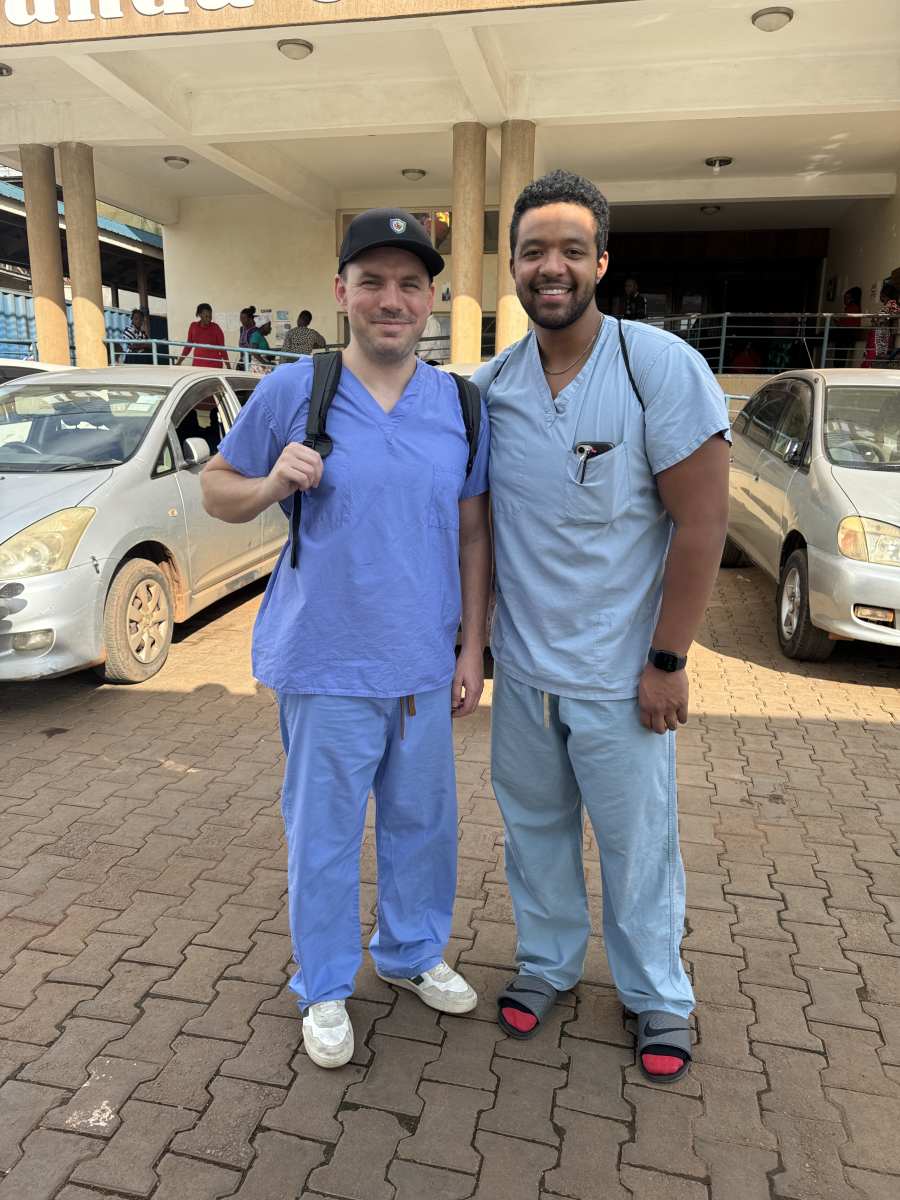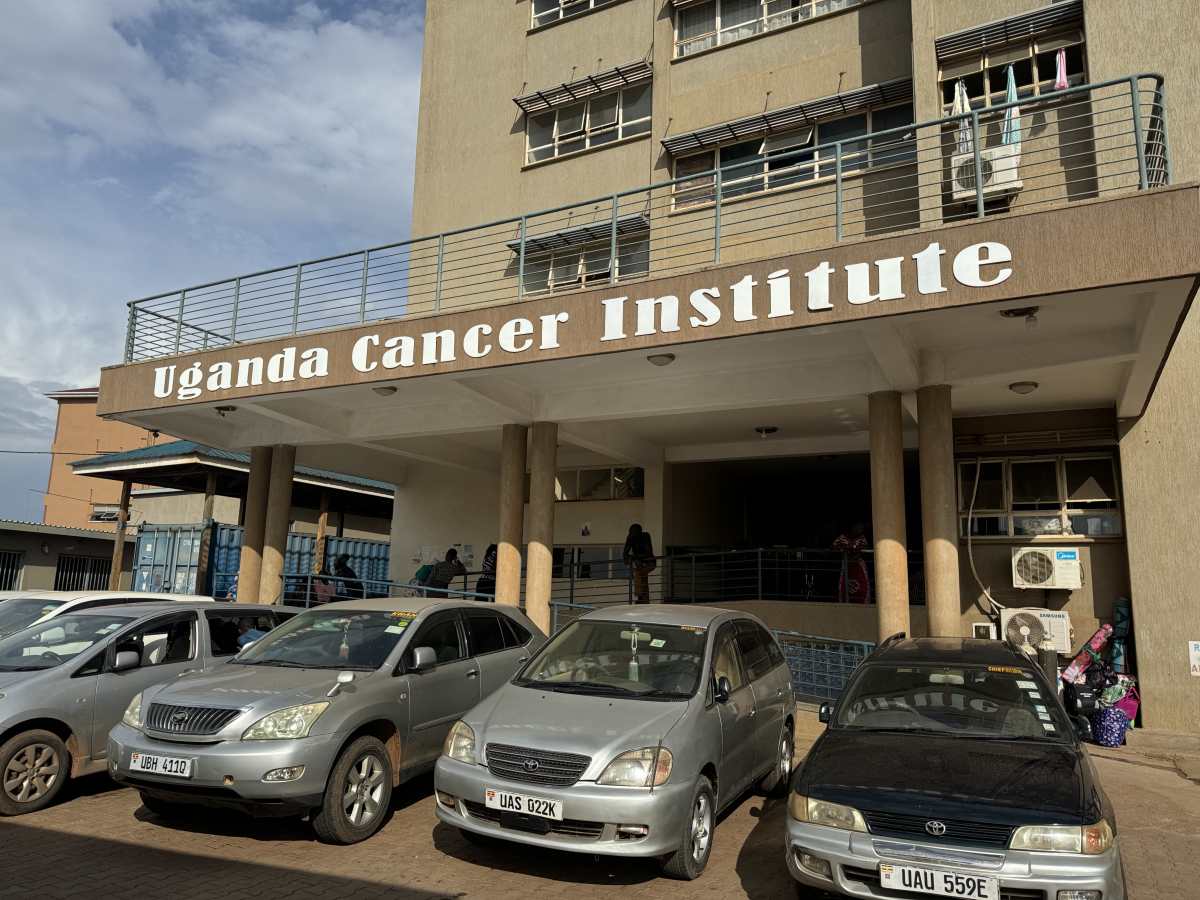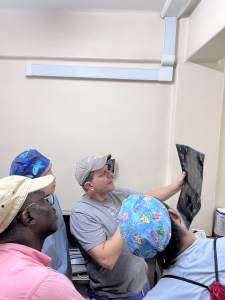Head & Neck Outreach is a 501(c)(3) non-profit organization founded in 2014 in collaboration with Dr. Otiti at the Uganda Cancer Institute. The outreach serves to improve treatment and care of patients with head and neck diseases and train physicians, nurses, and residents in Kampala, Uganda to manage complex pathologies of the head and neck. The program has performed over 250 complex head and neck surgeries and treated more than 500 patients in clinic.
I am a 4th year Otolaryngology resident at the University of Cincinnati interested in helping on the next mission trip in November 2024. In our program, we have learned to manage complex head and neck oncology patients with their resection, reconstruction and post-operative care. I will be assisting in the operating room, teaching local residents at the Makerere University School of Medicine how to manage complex head and neck cancer patients post-operatively, seeing patients in clinic and helping anywhere else I may be of assistance.
Head and Neck cancer affects individuals worldwide, with approximately 600,000 new cases diagnosed globally each year. In countries like Uganda, without health care systems that are able to provide access to radiation therapy, surgical resection and reconstruction is the only treatment option. Having a limited number of ENT specialists in the country, especially fellowship-trained ENT oncology specialists, many Ugandans suffering with head and neck conditions are unable to receive adequate diagnostic and therapeutic interventions. During the biannual mission trips, we will be performing oncological resections and reconstruction for patients with dire need of treatment.
A unique aspect of the mission trips in addition to caring for the local population is the education provided to the local residents and fellows for the surgical and medical management of patients with head and neck diseases. This has allowed for quality care of patients to continue after the traveling team has left. Head and Neck Outreach has also provided courses including Head and Neck Reconstructive Techniques and Surgical Skullbase Anatomy at the Makerere University School of Medicine.
Head and Neck Outreach continues to positively impact cancer care in Uganda by treating complex head and neck pathologies during each trip. Surgeries performed include composite resection of tumors of the head and neck, neck dissection, thyroidectomy, parotidectomy, free flap and local tissue reconstruction and other procedures required to treat patients with diseases of the head and neck. In order to continue the care for patients after each mission trip, the training of local physicians, residents, fellows, nurses and other hospital staff is a large focus of the time spent in Uganda. I am planning on pursuing a career in head and oncology and I hope to participate in this mission to help patients abroad for years to come.












Trip Reflection:
When I arrived at the airport in Cincinnati, I was greeted by Dr. Chad Zender, Katrina Harrill and a group of bags weighing 450 pounds. I had my vaccinations done, I started my malaria prophylaxis, my Uganda visa was in my backpack, and I was ready to go. My preparation for the trip included a book about the history, language and cultural customs of Uganda as well as the literature of head and neck cancer care in Africa. I immediately learned about the extreme shortage of head and neck surgeons in Africa. In 2005, there were no head and neck surgeons in sub-Saharan Africa north of South Africa for 1.05 billion people.
Over the last twenty years, a model had been created to train head and neck surgeons at the University of Cape Town in South Africa and through the Pan-African Academy of Christian Surgeons in Cameroon to then return to their home country to treat patients and train local surgeons. As a result, in 2018, there were 14 fully trained head and neck surgeons in 11 sub-Saharan African countries. Dr. Jeff Otiti had completed the fellowship in Cape Town, South Africa and has done a tremendous amount of work to create a system to treat patients with complex diseases of the head and neck in Uganda. As a collaborative effort with Dr. Zender at the University of Cincinnati, a head and neck fellowship was created in Uganda.
Prior to the trip, I was given the opportunity to work with the current fellow, Isaac Mukiibi, on a project to use virtual surgical planning as an educational and reconstructive tool within a surgical outreach program for a complex mandibular defect. I was excited to meet Issac and to learn about the country, the patients we were treating and the local infrastructure of cancer care, but what I did not expect was the impact of the relationships and friendships of the Ugandan people with our team.
We arrived in Entebbe, Uganda around midnight and Dr. Otiti was waiting at the airport. I realized immediately that Dr. Zender and Katrina’s relationship with Dr. Otiti and the team in Uganda was like a family. It became apparent why this trip was special. My nerves of arriving in a place that I was unfamiliar with quickly diminished. The next morning, we drove to the Uganda Cancer Institute to see the patients Dr. Otiti and Dr. Mukiibi had identified to be treated. The waiting room was filled, and we began to plan our week. The operating theatre was one room with two beds. With our full team including Dr. Otiti, the Ugandan anesthesiologists, surgical technicians, nurses, otolaryngology residents and fellow we were able to perform simultaneous cases in the same operating room on adjacent tables including six microvascular free flap reconstructions.
As a fourth-year otolaryngology resident, I was able to help setup the operating room, prepare the patients for surgery, assist with the procedure, pass instruments, ensure post-operative and inpatient orders were completed, complete daily progress notes and round on our post-operative patients. Working with Dr. Otiti and Dr. Zender was an experience for me that I will never forget. I had learned about their collaboration and work in Africa as an undergraduate student and it had left a significant impression on me. In my mind, meeting Dr. Zender and Dr. Otiti felt like meeting celebrities or people bigger than life. I had an idea of how impactful their work was in east Africa, but after this trip I learned that their friendship was an incredible driver and fuel to continue this work.
Many aspects of the trip will stay in my mind forever. Working with Dr. Otiti and Dr. Zender on a Weber-Ferguson approach to remove an ossifying fibroma in a young man, passing the microvascular instruments to Dr. Otiti while he sutured vessels together using loupes, conversations about soccer, movies and television shows with the Ugandan surgical technicians and residents, rounding on the patients and talking with family members, eating matoke in between cases, celebrating my birthday at our team’s favorite restaurant, shopping for souvenirs for my family at a local market are just a few examples. Isaac, the current fellow, and I are similar age, close in training and we learned we have similar interests. Although our support for English soccer teams are rivals, we became friends. Meeting someone similar to myself who lives and has grown up in a country that is drastically different from my own gave me a feeling of closeness. I hope to continue to work with head and neck outreach, continue my friendship with Isaac and continue my education so I can return and help with head and neck care in Uganda. It is hard to express my gratitude for what I have experienced.